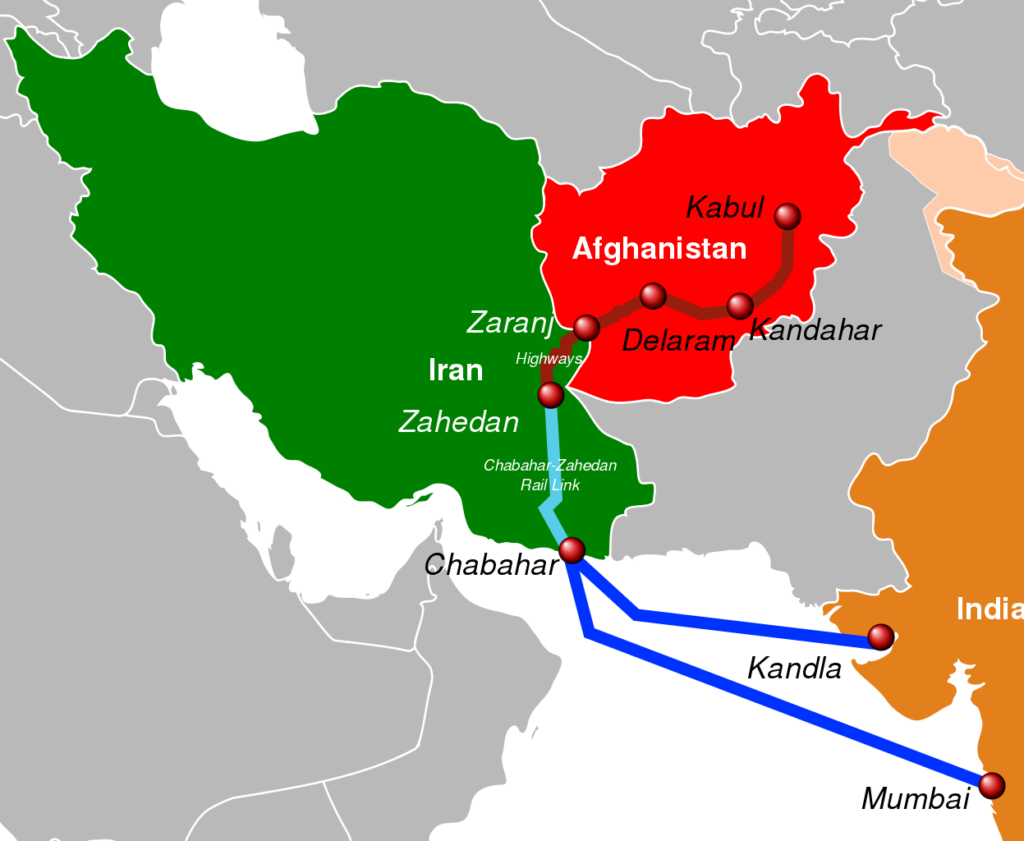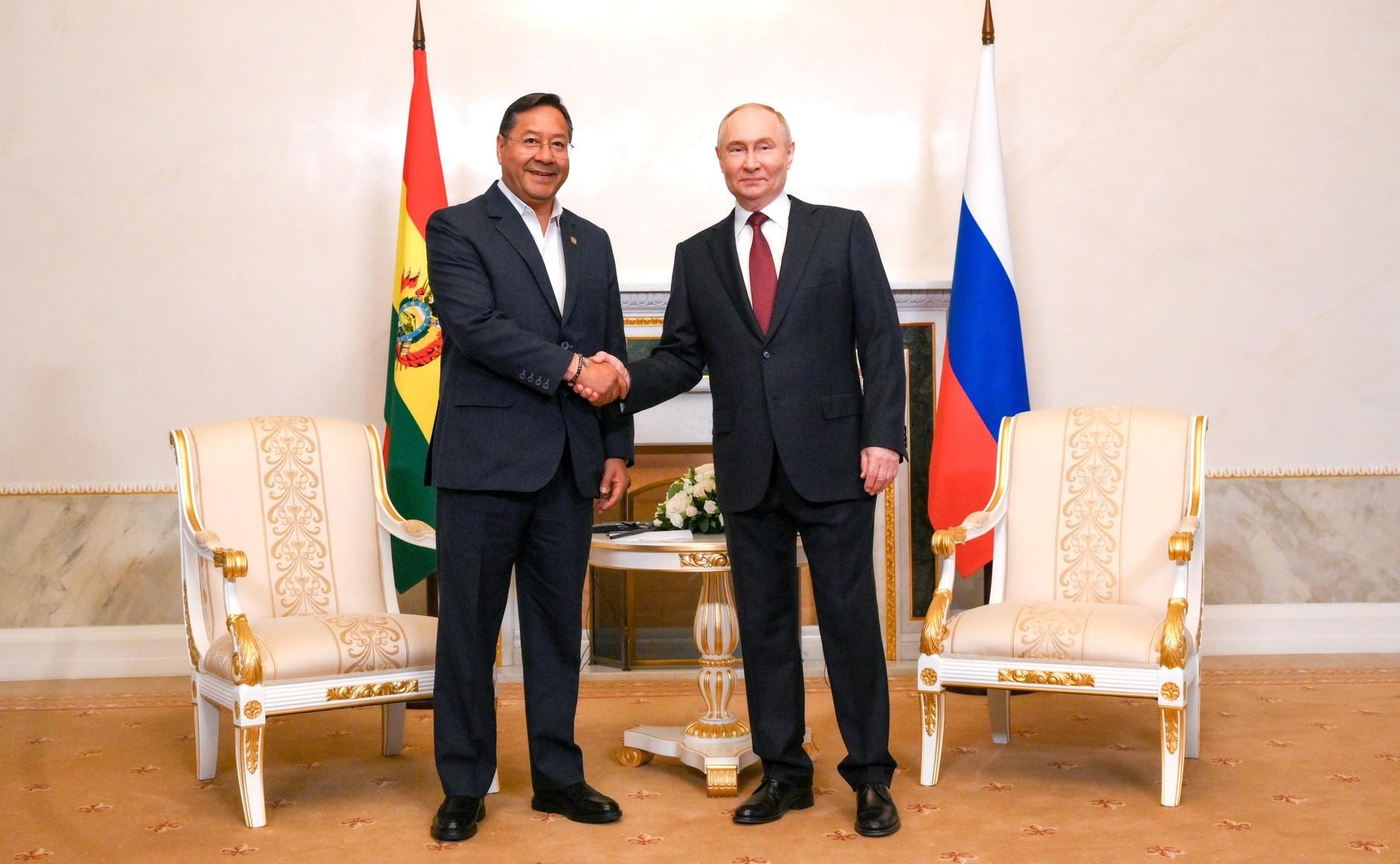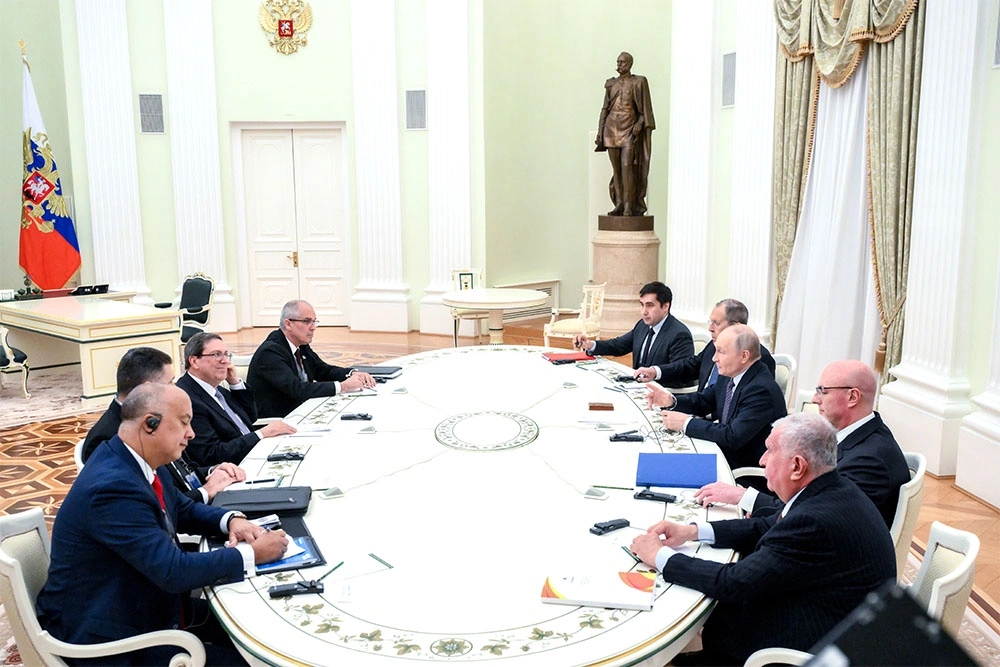
With Russian Route Blocked, Uzbekistan Looks to Indian-Iranian-Afghan Chabahar Port Project
With Russian Route Blocked, Uzbekistan Looks to Indian-Iranian-Afghan Chabahar Port Project
The Russo-Ukraine war, the extensive Western sanctions against Russia, and the growing possibility that European border states will block east-west transit corridors traversing Russian territory into Europe are having far-reaching implications for the landlocked countries of Central Asia, which have historically relied on road and rail corridors through Russia to reach markets there and beyond. Prior to the war, Russia, Ukraine, Poland and Belarus had all hoped to be part of the “New Eurasian Land Bridge” linking Europe to East Asia. But those aims were derailed when Russian President Vladimir Putin ordered the full-scale re-invasion of Ukraine on February 24. This has created a severe headache for China, endangering as it does its Belt and Road Initiative’s (BRI) northern route, which crossed Russia and the Black Sea via Central Asia (South China Morning Post, March 12).
One way that the landlocked Central Asian republics may hope to overcome this sudden bottleneck on their international trade is to link up, across the inland Caspian Sea, to the Baku–Tbilisi–Kars (BTK) Railroad, which can carry cargo destined for Europe (see EDM, April 8). But another key alternative may be the north-south route via Iran, whose overland transit networks offer connections to Turkey and Europe as well as to Iranian ports on the Persian Gulf and the Gulf of Oman. Yet of particular importance will be Chabahar, Iran’s only seaport with direct access to the Indian Ocean and its closest one to the Central Asian countries.

On May 24, 2016, India, Iran and Afghanistan signed a historic tripartite deal to develop the strategic Iranian port of Chabahar as a crucial node in a “Transit and Transport Corridor” through Afghanistan. Thanks to powerful lobbying from India, the United States exempted Chabahar from its “Policy of Maximum Pressure” (2018–2020) sanctions against Iran (see EDM, September 28, 2021). And more recently, doubly landlocked Uzbekistan showed great interest in joining the Chabahar Port Transit Project, finally signing an agreement to gain access to the port in January of this year, just weeks before the start of the current Russo-Ukrainian war (Caspian News, January 26).
Traditionally, about 80 percent of Uzbekistan’s exports and imports pass through Russia. Therefore, it was reasonable for Tashkent to look for new transit routes in other directions even before Russia re-invaded Ukraine this past winter. The Chabahar port became a logical point of interest for Tashkent. Uzbekistan already has a rail connection to northern Afghanistan and plans to link up with the Iranian railway network via Herat in order to facilitate access to the port of Chabahar. This is made more tangible by the fact that, by the end of 2020, Iran completed and inaugurated the cross-border Khaf–Herat railroad to Afghanistan, which further strengthened the multi-modal (maritime and rail) transit link between these two countries and India (see EDM, September 28, 2021). Although the Tashkent–Kabul–Peshawar route to the port of Karachi may be slightly shorter than options via Iran, the former runs through mountainous areas and is less secure than the Iranian corridor.
Iran, like Uzbekistan, was able to establish relatively close relations with the Islamic Emirate of Afghanistan after the Taliban returned to power, and much of the economic and trade cooperation between the two countries now continue as they had previously. Iranian-Uzbekistani relations with the Taliban have, thus, played a key role in maintaining the Chabahar Port Transit Project, unlike the Lapis Lazuli Corridor, which was practically stopped after the Taliban took Kabul. The Islamic Emirate of Afghanistan needs the continuation of regional trans-border projects such as Turkmenistan–Afghanistan–Afghanistan–India (TAPI) natural gas pipeline, the Central Asia–South Asia Electricity Transmission and Trade Project (CASA-1000) and the Chabahar port to increase the Taliban’s domestic and international political legitimacy as well as improve Afghanistan’s economic situation.
Indeed, India’s role in the continuation of the Chabahar Port Transit Project and the accession of Uzbekistan to it are both crucial. Immediately after the Taliban’s return to power in late August 2021, India’s continued participation in the Chabahar project looked shaky (IRNA, August 24, 2021). However, as the situation in Afghanistan began to stabilize somewhat, the Indian position gradually changed, and Iran and Uzbekistan seem to have played an important role in this process. Notably, by September 2021, Indian Prime Minister Narendra Modi called on the Central Asian countries to act so that they could benefit from the Chabahar’s port capacity in order to expand their trade in the region (Tehran Times, January 28, 2022).
It is worth pointing out that from New Delhi’s perspective, the Chabahar Port Transit Project directly competes with the China-Pakistan Economic Corridor (CPEC—a flagship BRI project in South Asia) and, therefore, is of strategic importance for India. For this reason, India has constructed a road from Zaranj, Afghanistan, near the Iranian border, to the south-central Afghan city of Delaram, which feeds into the Garland Highway, connecting Kabul, Kandahar, Mazar-e-Sharif, Herat and Kunduz. This has enabled Indian non-perishable goods to reach Afghanistan while entirely bypassing Pakistan, which had heretofore denied India direct access to Afghanistan (Hindustan Times, December 12, 2020). Additionally, Uzbekistan’s participation in the Chabahar port project will enable India to gain easier and more direct access to the 80-million-strong Central Asian market—in a region where India’s traditional mega rival, China, is the top trade and economic partner of all five post-Soviet countries.
In general, the war in Ukraine and restrictions on trans-Russian BRI transit routes to Europe will likely further sharpen Uzbekistan’s interest in the Chabahar Port Transit Project as well as draw the attention of other Central Asian states, including Kazakhstan. Clearly, however, this will require a further development of relations between Central Asian governments and Taliban-controlled Afghanistan—yet another unforeseen geopolitical consequence of the Kremlin’s unprovoked war on Ukraine (see EDM, March 7, 15, April 5, 14).

